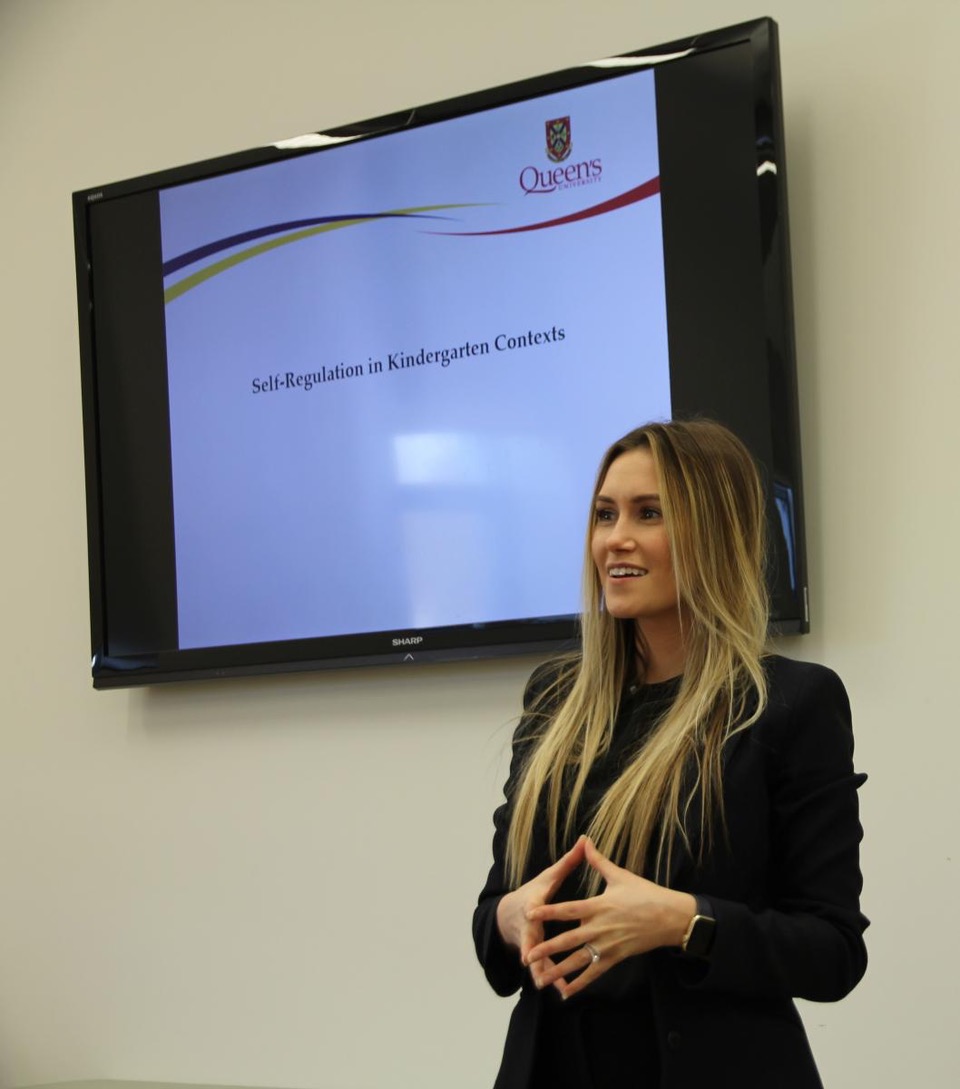 Children today face a vastly different educational experience than what most of us typically remember from our own childhood. Children as young as 4- and 5- years of age are experiencing extraordinarily high levels of stress, resulting in challenges at home and at school. Canadian research shows that approximately 40% of children struggle with attention, motivation, and impulsive behaviours at school.
Children today face a vastly different educational experience than what most of us typically remember from our own childhood. Children as young as 4- and 5- years of age are experiencing extraordinarily high levels of stress, resulting in challenges at home and at school. Canadian research shows that approximately 40% of children struggle with attention, motivation, and impulsive behaviours at school.
Dr. Kristy Timmons, Assistant Professor in the Faculty of Education at Queen’s University, is well aware of the current climate. “The number of children experiencing these challenges is growing and behaviours are becoming more severe and presenting at a younger age,” she says. As a result, teachers are spending an inordinate amount of time and resources on managing behavior which leaves less time to focus on classroom learning.
In order to address this, educators and parents need to help children develop the skills to deal with both difficult and day-to-day situations. "Without addressing the underlying factor of stress, efforts to work solely at the level of behaviour will be at best ineffective and at worst will exacerbate the child's challenges in regulating their emotions and behaviours."
In the past, educators and parents addressed challenging behaviours of children reactively. Kristy’s research focuses instead on the ways educators and parents can support self-regulation proactively to combat what might appear to be behavior challenges but what is actually a stress reaction. These proactive strategies include working with young children to develop learning goals, coming up with strategies with children in advance so that the children have a strategy to pull from when needed. This also includes the use of contemplative practices (e.g., mindfulness and mediational based practices) as a tool to facilitate self-regulation skills in the early childhood classroom. Kristy’s research emphasizes the important role of shared- and co-regulation. After all, “children learn self-regulation skills best through the modeling of regulation strategies by educators, parents and peers.” Through her research, Kristy continues to lead work in understanding processes that influence young children's' learning, engagement, and self-regulation, as well as educators’ and parents’ ability to support this.
Kristy became aware of the misconceptions within the field of self-regulation including the limited understanding of how best to support self-regulation skills. This has become a driving force behind her research, prompting her to partner with numerous organizations to help improve understanding of self-regulation and self-regulated learning practices.
One key partnership is with the Self-Regulation Institute (SRI), a charitable organization founded by Dr. Stuart Shanker, Distinguished Research Professor Emeritus of Philosophy and Psychology at York University. A partnership with the SRI will leverage cutting edge research on stress and the brain to better support young children’s self-regulation.
Kristy has also worked with researchers at the Ontario Institute for Studies in Education to develop the Child Observation Framework, a tool to help researchers make meaningful observations about self-regulation behaviours. She is currently working to adapt this framework so that it can be used by teachers and early childhood educators to assess self-regulation in play-based context.
Kristy’s research also assists children who face additional barriers and those who work with them. She is currently working with The Kid’s Brain Health Network to conduct an objectives-based program evaluation of the Provincial Outreach Program for Fetal Alcohol Spectrum Disorder (POPFASD). POPFASD is funded by the British Columbia Ministry of Education with the mandate of increasing educators' capacity to meet the educational needs of students with Fetal Alcohol Spectrum Disorder (FASD). This research will provide important insight into how POPFASD is preparing educators to support students with FASD, and more broadly helping teachers across Canada to support these students.
Across her research, Kristy’s commitment to children’s health and learning is central. What also stands out is her ability to collaborate with academics, government, communities, and organizations to improve the experiences of Canadian children and to build the capacity of those who work with them.
